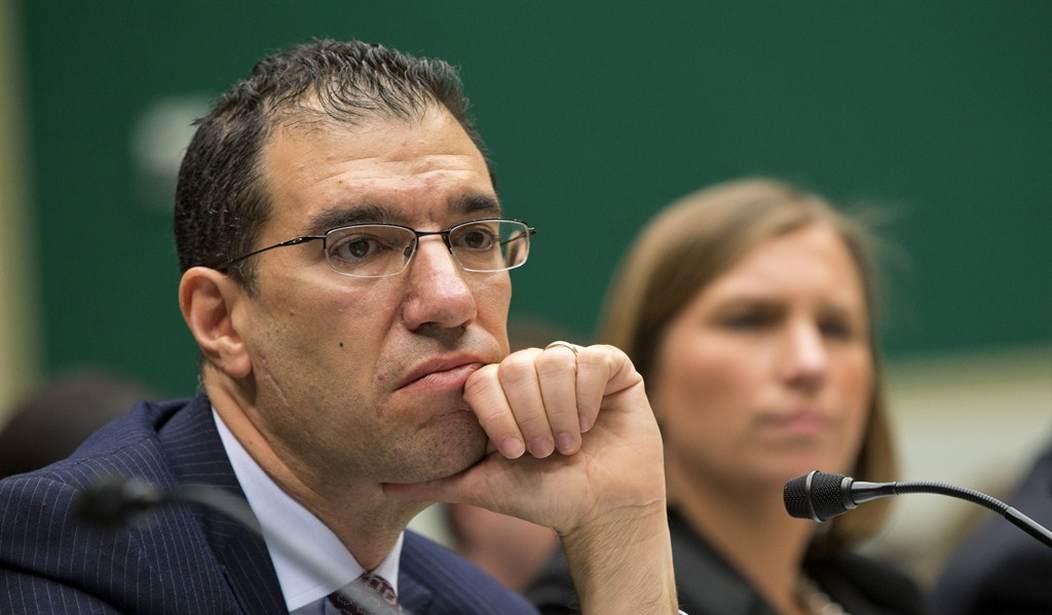The answer to the question "When can you ignore a Congressional Subpoena?" is easy to guess: when you are a Democrat.
VERY URGENT Unreported Truths on the newest lawfare from @POTUS @WhiteHouse.
— Alex Berenson (@AlexBerenson) February 4, 2024
Biden’s Justice Dept. prosecuted Trump officials including @bannon_2024 for refusing to comply with Congressional subpoenas.
It is now HELPING former Biden Covid censorer-in-chief @ASlavitt avoid one. pic.twitter.com/rjaN105XID
Alex Berenson, he of jab scepticism fame, is relearning a lesson as old as time. Democrats can break the law with no repercussions, while Republicans will be chased down to the ends of the earth in order to punish them.
I've never bothered to learn anything about Berenson's politics because they are irrelevant to why he is controversial. You will not be surprised to learn that during the height of the scamdemic Berenson was censored on social media at the behest of the government, and he is suing the Biden administration over his silencing.
At the heart of the case are the actions of Andrew Slavitt, a particularly nasty piece of work who became one of the chief censors in 2021. Slavitt has been subpoenaed to appear before a Congressional committee to testify about his actions, and he has answered "No."
He refuses to comply with the subpoena.
You may recall that Trump advisor Peter Navarro was recently convicted for the exact same offense. The Justice Department, which has jurisdiction over these cases, chose to prosecute Navarro. Unsurprisingly they have chosen not to prosecute Slavitt.
Andrew Slavitt, the former Biden Administration operative who in 2021 helped conspire to violate my First Amendment rights and make Twitter ban me, has refused to comply with a Congressional subpoena to testify about his actions.
Slavitt’s lawyers told the House Judiciary Committee last Wednesday he would ignore a subpoena ordering him to testify under oath to the committee that day because he “had received a letter from the White House instructing him not to appear.”
The committee had subpoenaed Slavitt to testify on how he colluded with social media companies to censor speech the Biden Administration disliked, including my Twitter account and its reporting on the mRNA Covid jabs.
Slavitt’s conduct is at the heart of Berenson v Biden, my federal lawsuit over the conspiracy.
Slavitt's argument that he should not have to testify amounts to an invocation of executive privilege, and is backed up by the President's counsel. In principle, presidents do have some discretion to keep some policy discussions private, but what is noteworthy here is that Navarro had also invoked claims of executive privilege. The difference again is that Biden administration, which is zealously defending its own rather shaky claim of privilege here, intervened in the Navarro case to argue against it.
What is the difference between the cases? The Party of the parties involved.
As with so much regarding the decisions of the Biden Justice Department, the application of the law boils down to one variable: does the Biden regime want to help or harm the defendant?
As a practical matter, presidents have generally fought vigorously to defend and expand executive privilege claims for obvious reasons. All institutions tend to zealously defend their power, so what is striking here is Biden's confidence that he can abandon institutional protections and rely entirely on the Justice Department to do his bidding regardless of precedent.
The pretense of equal application of the law has been dispensed with. This is what is known as defending our democracy and our norms.








Join the conversation as a VIP Member